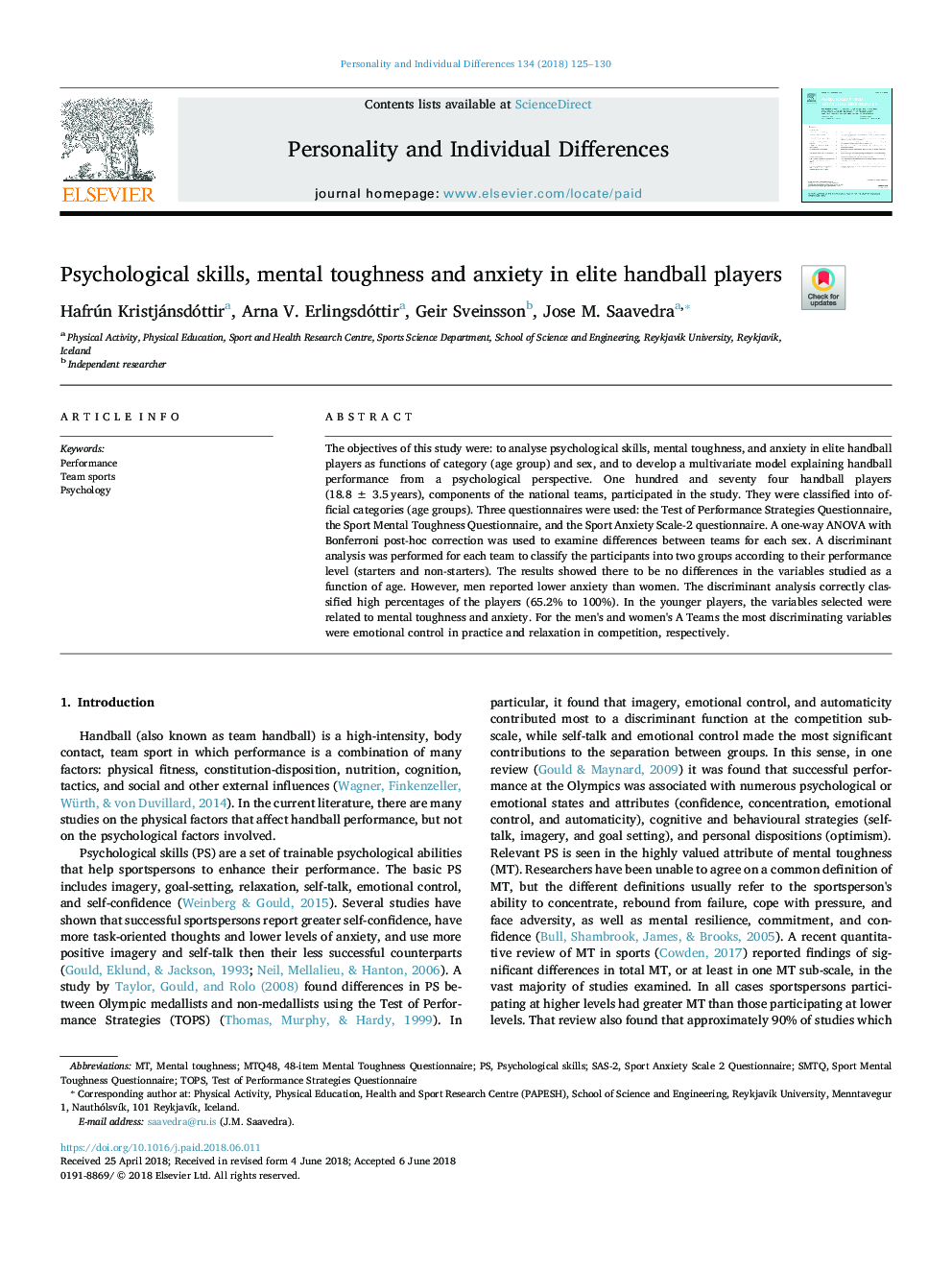| Article ID | Journal | Published Year | Pages | File Type |
|---|---|---|---|---|
| 7248405 | Personality and Individual Differences | 2018 | 6 Pages |
Abstract
The objectives of this study were: to analyse psychological skills, mental toughness, and anxiety in elite handball players as functions of category (age group) and sex, and to develop a multivariate model explaining handball performance from a psychological perspective. One hundred and seventy four handball players (18.8â¯Â±â¯3.5â¯years), components of the national teams, participated in the study. They were classified into official categories (age groups). Three questionnaires were used: the Test of Performance Strategies Questionnaire, the Sport Mental Toughness Questionnaire, and the Sport Anxiety Scale-2 questionnaire. A one-way ANOVA with Bonferroni post-hoc correction was used to examine differences between teams for each sex. A discriminant analysis was performed for each team to classify the participants into two groups according to their performance level (starters and non-starters). The results showed there to be no differences in the variables studied as a function of age. However, men reported lower anxiety than women. The discriminant analysis correctly classified high percentages of the players (65.2% to 100%). In the younger players, the variables selected were related to mental toughness and anxiety. For the men's and women's A Teams the most discriminating variables were emotional control in practice and relaxation in competition, respectively.
Related Topics
Life Sciences
Neuroscience
Behavioral Neuroscience
Authors
Hafrún Kristjánsdóttir, Arna V. Erlingsdóttir, Geir Sveinsson, Jose M. Saavedra,
